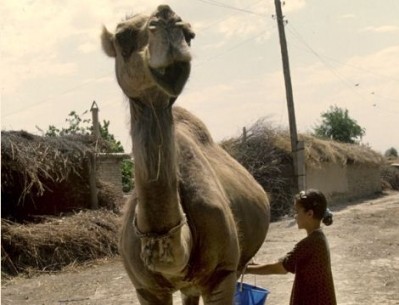Camel milk inhibits growth of colon cancer cells, find researchers

Research by Habib et al. in the Food Chemistry journal examined the functional properties of camel milk lactoferrin, the main iron binding protein of the milk.
56% decline in cancer growth
The researchers applied camel milk lactoferrin to HCT-116 colon cancer cells and found that high concentrations of between 3 mg/ml and 5 mg/ml demonstrated a 56% decline of growth after two days.
Lower concentrations below 1 mg/ml did not inhibit cell growth.
“Lactoferrin seems to have great potential in practical medicine,” said the researchers.
“…The use of Lactoferrin in combination with other milk components or drugs may be an increasing consideration.”
They also found that camel milk lactoferrin exhibited antioxidant activity and could prevent DNA damage by binding catalytic iron.
Camel milk characteristics
Camel milk is permitted for human consumption in Europe, but only a select few processors meet the safety requirements to export into the EU.
Camel’s milk is slightly saltier than cow milk and the United Nations Food and Agriculture Organization (FAO) has previously said that it is three times richer in Vitamin C.
According to the Camel Milk Association, camel’s milk is closer to human milk than any other milk and can be digested by people with lactose intolerance.
Source:
Food Chemistry, Vol. 141, Issue 1, 1 November 2013, Pages 148–152
http://dx.doi.org/10.1016/j.foodchem.2013.03.039,
‘Camel milk lactoferrin reduces the proliferation of colorectal cancer cells and exerts antioxidant and DNA damage inhibitory activities’
Authors: Hosam M. Habib, Wissam H. Ibrahim, Regine Schneider-Stock, Hassan M. Hassan,











